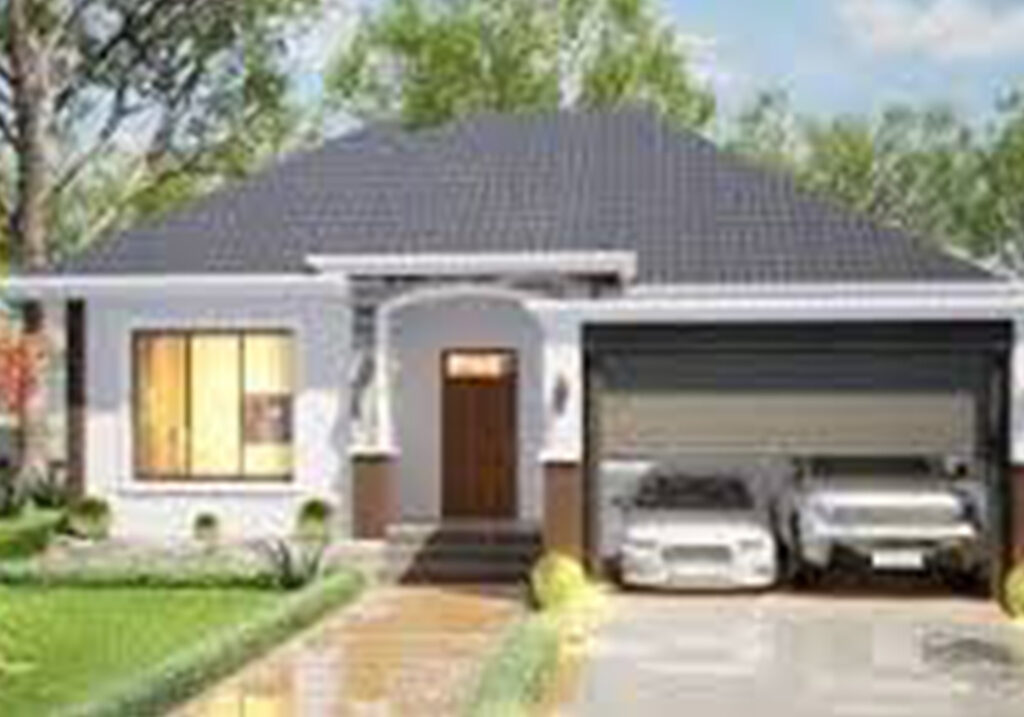A garage is an excellent investment for a home’s value since it protects vehicles and provides storage space. They are a fantastic way to increase the value of your property. They provide safe storage, weather protection and can also be used as a workshop.
However, adding a garage is not a simple task, and expenses vary depending on the size, complexity, and location. Some homeowners prefer to leave a new garage unfinished with plain drywall, while others prefer to add built-in cupboards, heating or cooling, or a personalized workspace.
When considering a 2-car garage, you need to evaluate various factors like design complexity, location, materials, and customizations. The cost of building a 2-car garage can differ a lot, and is based on these factors.
In this article, we will explore the key considerations for building a 2-car garage, including the cost breakdown, different types of garages, and how to plan for your new addition.
Cost Breakdown for Building a 2-Car Garage
The cost of constructing a two-car garage varies widely depending on several factors, including size, materials, and location. On average, building a two-car garage costs around $52 per square foot. For instance, a typical 24×24-foot garage might cost around $30,000, while a slightly larger 24×30-foot garage could cost around $31,200. These prices serve as general estimates, but the final cost can differ depending on the specific choices made throughout the construction process.
The overall square footage of the garage plays a significant role in determining the cost. A larger garage will obviously require more materials, time, and labor. However, customization of the garage further drives up the price. Custom features such as insulation, built-in security systems, and even additional living space like lofts or apartments can cause the price to escalate. A custom-built garage can cost anywhere from $35 to $90 per square foot depending on the complexity of the design and the added features.
Garage design is another factor influencing the cost, particularly when deciding whether to have a side-by-side or tandem parking layout. A side-by-side configuration requires more space and, therefore, more material and labor, which could increase the cost. On the other hand, a tandem layout, where cars are parked one in front of the other, may save space but could still necessitate additional modifications like wider doors or stronger foundations. These choices have a direct impact on the overall construction cost of the garage.
Attached vs. Detached Garages
When planning a 2-car garage, homeowners must decide between an attached or detached garage. Each option has its own set of benefits and costs. The average cost of adding an attached garage to an existing home is around $26,000. This price range varies widely depending on the design, with some garages falling in the range of $10,000 to $43,000, depending on whether they include extra features like living spaces or are part of a larger renovation project.
An attached garage is typically connected to the home and shares a wall, which makes it more convenient, especially in terms of heating and access. The floor plan can also be optimized to allow shared walls with existing wet rooms like laundry or bathrooms, making it easier to include plumbing or electricity. However, you may need to update the connecting door with a fire-rated door, which adds to the overall cost.
On the other hand, detached garages tend to be more flexible but can come with higher expenses due to the need for additional site preparation. A simple steel kit garage for one car could cost as little as $1,500, while a custom, barn-like structure with space for three cars and an in-law apartment can reach up to $50,000. The cost depends on factors such as the size of the garage, materials used, labor costs, and whether the garage is insulated, has a foundation, and includes a driveway. Detached garages can be more expensive to build than attached garages due to these extra requirements.
Customizing Your Garage: What Affects the Price?
The level of customization you choose for your two-car garage plays a pivotal role in determining the final cost. While a basic garage offers a simple structure to protect your vehicles, many homeowners opt for added features that enhance functionality and aesthetics. Custom additions such as extra storage, workbenches, and custom shelving can optimize space and make the garage more useful. For those looking for a higher-end garage, adding features like built-in cupboards, climate control systems, or specialized lighting can significantly increase both the price and the complexity of the build.
Another major factor affecting cost is the materials used for the construction of the garage. Standard materials, such as steel framing with wood siding, are typically more affordable and are common choices for many homeowners. However, opting for premium materials, such as brick, stone, or high-end metal panels, can substantially raise the cost of your project. Not only do these materials require more specialized labor, but they also come at a higher price point, making them a luxury option for homeowners looking for a more visually appealing structure.
Garage doors are another key aspect that influences the overall cost. Basic garage doors can be affordable, but upgrading to high-quality, insulated doors or choosing specialty doors with custom finishes, windows, or enhanced security features can add significantly to the total cost. If you plan to add extra features such as a loft area or additional living space above the garage, the complexity of the construction will increase, along with the overall cost. These upgrades often require more advanced structural support, further increasing both material and labor costs.
Additional Costs to Consider
In addition to the basic construction costs, there are several other expenses to consider when building a 2-car garage. For example, site preparation can include the cost of clearing land, leveling the ground, or creating a new driveway. A solid foundation is essential to ensure the garage is stable and long-lasting, and this can add another $3,000 to $7,000 to the overall cost, depending on the complexity of the site.
Plumbing and electricity are other potential costs that can quickly add up. If your garage includes a bathroom, sink, or laundry area, you may need to bring in a plumber to install these systems. Similarly, electrical work may be needed if you plan to have lighting, outlets for power tools, or even a heating or cooling system. These additional services can easily add $1,500 to $5,000 to the overall cost of the garage, depending on the scope of the work.
Finally, permits and inspections should also be factored into your budget. Most areas require permits for building a garage, especially if it involves significant alterations or additions to your property. Permitting fees can range from $100 to $2,000, depending on your location and the complexity of the project. Failing to obtain the proper permits can lead to fines or delays in the construction process, so it’s important to budget for this step.
The Benefits of Building a 2-Car Garage
Despite the significant investment, constructing a 2-car garage can add considerable value to your home. Not only does it provide a secure and weatherproof space for your vehicles, but it also offers extra storage and potential for customization. Many homeowners use the extra space for hobbies, such as woodworking, or even as a small business area for their personal or professional needs.
Additionally, having a garage can be a key selling point when you decide to sell your home. Potential buyers are often looking for secure parking and additional storage space, making a 2-car garage an attractive feature that can increase the market value of your home. According to recent studies, homeowners can expect to recoup a significant portion of their investment in a garage when they sell their home. In some cases, the return on investment (ROI) can be as high as 80% to 85%, depending on the location and quality of the garage.
Finally, a well-built garage can protect your vehicles and belongings from the elements, which is especially important if you live in an area prone to harsh weather conditions like snow, hail, or intense sunlight. In addition, it helps reduce wear and tear on your vehicles, as they will be shielded from outdoor exposure and less likely to suffer from rust or other weather-related damage.
Conclusion
Investing in a well-built, secure garage for your home is a wise decision. The cost of building a 2-car garage varies greatly depending on factors like design, materials, and location. On average, homeowners can expect to pay between $26,000 and $43,000 for an attached garage and between $1,500 and $50,000 for a detached garage.
Remember, these improvements will enhance your property’s value in the long run. Avoid skimping on cost as much as possible. Choose a reliable partner like Lion Buildings to help you build your dream garage. We promise you won’t regret it.

